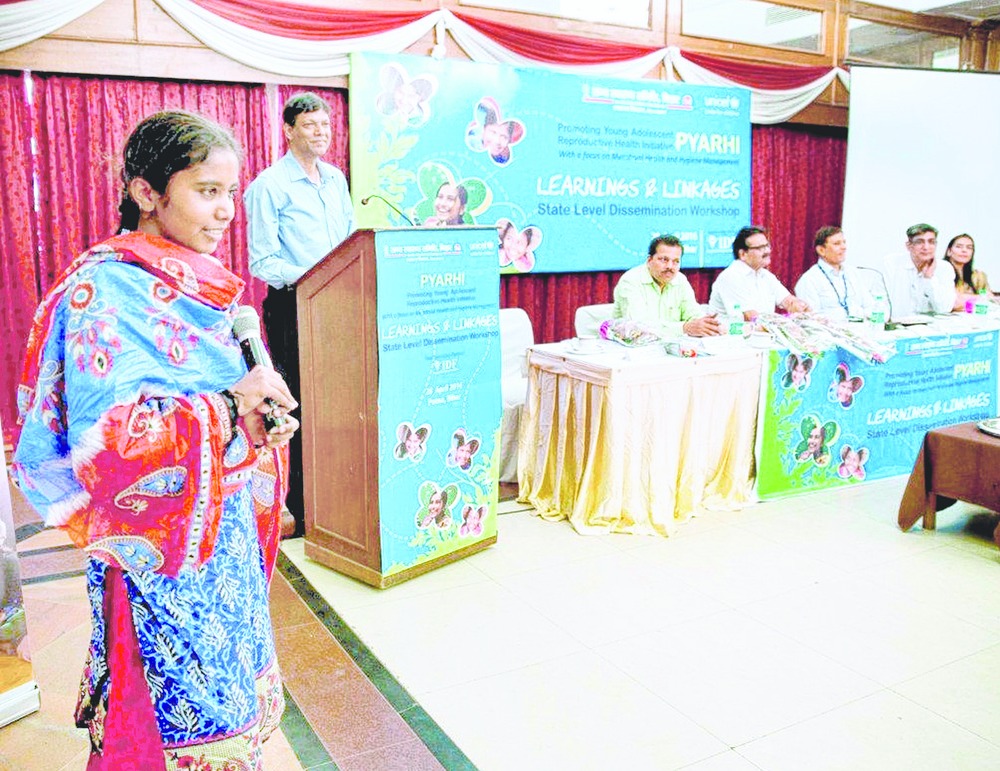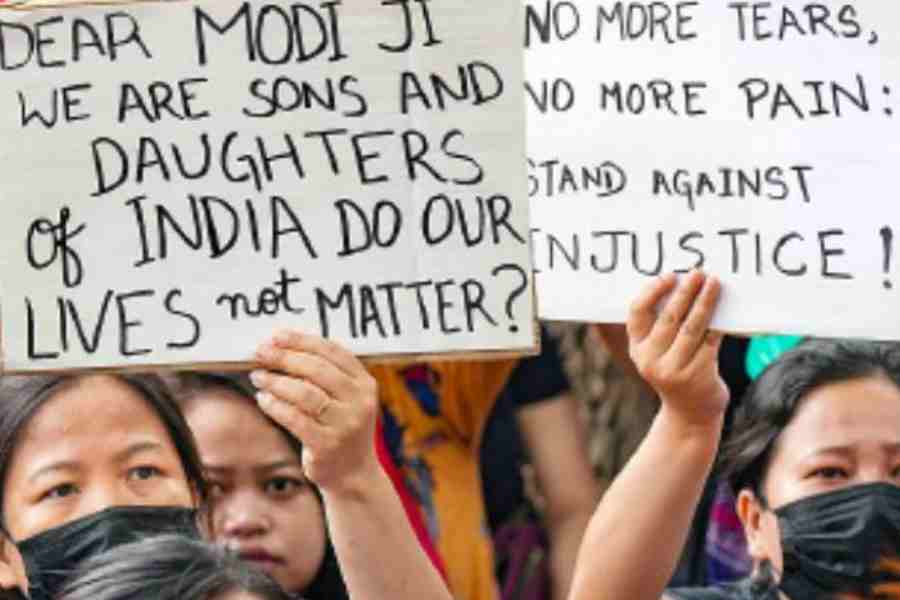
A Unicef study conducted in Nalanda and Vaishali districts has revealed poor menstrual hygiene among adolescents.
Unicef conducted the survey between September and November last year, the findings of which were released on Thursday at a programme it jointly organised with the State Health Society.
The survey found 48 per cent girls aged between 10 and 19 washing their clothes for daily wear along with the pieces they use to stem menstrual flow. It also highlighted that only 60 per cent young women wash the clothes used during their period with soap and dry them in sunlight. The rest wash their clothes in plain water and dry it under the shade, increasing chances of germ build-up.
"Sixty-seven per cent girls bury the pieces of cloth used during menstruation near their house and 47 per cent throw them in pits," said Arupa Shukla, communication specialist at Unicef-Delhi. "Only 45 per cent burn the pieces of clothing."
Anita Singh, a gynaecologist in Patna, said: "If a woman uses cloth to stem menstrual blood flow, she should do it in a hygienic way. Changing the menstrual cloth frequently in a day, washing it with soap and drying it under the sun is mandatory. Rural women hardly follow these rules. Many of them use the same cloth several times and they don't even wash it properly. t may lead to obstruction in her urinary tract and she may face difficulties in conceiving later. Menstrual hygiene is very important."
Manju Gita Mishra, another gynaecologist in Patna, said patients often come to her complaining of urinary tract infections caused by poor menstrual hygiene.
Sources said the recently released National Family Health Survey (NFHS) also presented daunting figures regarding menstrual hygiene in the state. According to the NFHS-4 data, only 27.3 per cent girls aged between 15 and 24 years use proper sanitary napkins during their period against the 55.6 per cent in urban areas. The data shows that Bihar fares the poorest on menstrual hygiene followed by Tripura.
The Union government's scheme, under which social health activists sold sanitary napkins to women in 10 districts of the state at a cheap price stopped only after one year of rolling out the programme. It started in Aurangabad, Kaimur, Rohtas, Vaishali, Bhojpur, Buxar, Saran, Darbhanga, Munger and Gaya in 2014, but ended in 2015 because the government stopped supply of sanitary napkins.
"A pack of napkins was sold for Rs 6," said a State Health Society official on condition of anonymity. "Each pack had six napkins. The State Health Society got Rs 5 and the health activists kept the rest."
The official said that the project was abandoned because the Centre stopped funding it.
"We requested the Union government to revive the programme again this year," he said. "We will provide sanitary napkins to girls who don't go to school because the education department already started giving sanitary napkins to school girls two years back."










